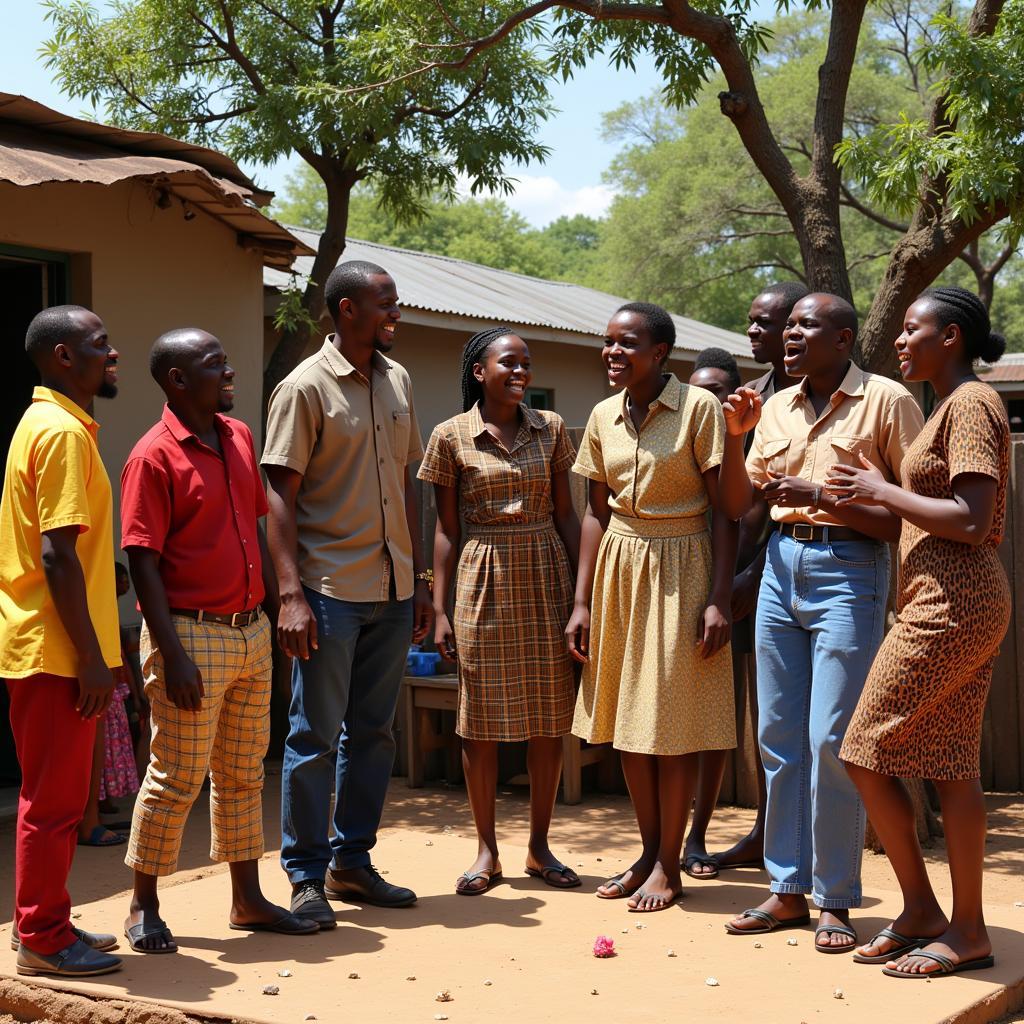Exploring African Femininity: Strength, Resilience, and Beauty
African Femininity is a multifaceted and dynamic concept, rich in history, culture, and tradition. It’s a narrative woven from the threads of resilience, strength, creativity, and an unwavering connection to heritage. This article delves into the diverse expressions of African femininity, challenging stereotypes and celebrating the powerful roles women play across the continent. We’ll explore how African women are shaping their communities, influencing cultural norms, and redefining what it means to be a woman in the 21st century.
The Diverse Tapestry of African Femininity
African femininity isn’t a monolithic entity; it’s a vibrant mosaic reflecting the continent’s vast ethnic, linguistic, and cultural diversity. From the bustling markets of Marrakech to the serene landscapes of the Serengeti, women’s experiences are shaped by unique traditions and social structures. Understanding African femininity requires acknowledging this diversity and appreciating the nuanced ways women navigate their worlds. For instance, in some cultures, women hold prominent leadership roles within their communities, while in others, their influence is primarily exerted through family and social networks.
Check out this refresher on African ladies: African lady refresher.
It’s also important to recognize the impact of historical and political forces on African women’s lives. Colonialism, conflict, and economic hardship have presented significant challenges, yet they have also fostered incredible resilience and resourcefulness. African women have consistently risen above adversity, becoming pillars of strength within their families and communities. They have played, and continue to play, a crucial role in preserving cultural heritage, advocating for social justice, and driving economic growth.
Challenging Westernized Perceptions of African Femininity
Often, Western media portrays a limited and often distorted view of African women. These stereotypes fail to capture the complexity and dynamism of their lives. It’s crucial to move beyond these reductive representations and engage with the diverse realities of African femininity. This means listening to African women’s stories, amplifying their voices, and recognizing their agency in shaping their own narratives.
What Does African Femininity Mean Today?
African femininity continues to evolve in the face of globalization and rapid social change. Young African women are embracing new opportunities in education, technology, and entrepreneurship, while also maintaining a strong connection to their cultural roots. They are redefining what it means to be a modern African woman, forging new paths and challenging traditional expectations. This includes advocating for gender equality, pushing boundaries in creative fields, and using their voices to address social issues affecting their communities.
For example, there is a vibrant art scene showcasing the beauty and strength of African women: African lady with flowers in her hair paintings.
Dr. Abena Oduro, a renowned Ghanaian sociologist, states, “African femininity is a powerful force that shapes the continent’s present and future. It’s about embracing tradition while forging new paths, celebrating strength and resilience, and challenging the world to see African women in all their complexity.”
Embracing Strength and Resilience: The Core of African Femininity
The strength and resilience of African women are undeniable. They are the backbone of their families, the custodians of cultural traditions, and the driving force behind many communities. Their ability to navigate challenges, overcome adversity, and create positive change is a testament to their enduring spirit.
Professor Fatima Mbaye, a Senegalese historian, notes, “African women have always been at the forefront of social and political movements. Their contributions to the continent’s history are often overlooked, but their impact is undeniable.”
Conclusion
African femininity is a complex and ever-evolving concept. It’s a story of strength, resilience, beauty, and a deep connection to heritage. By challenging stereotypes and embracing the diversity of experiences, we can gain a deeper appreciation for the powerful roles women play across the African continent. Understanding African femininity is essential to understanding Africa itself. This journey of exploration requires ongoing dialogue, active listening, and a commitment to amplifying the voices of African women themselves.
FAQ
- What are some common misconceptions about African femininity?
- How has colonialism impacted African women’s roles in society?
- What are some examples of African women challenging traditional gender roles?
- How are young African women redefining femininity in the 21st century?
- What are some resources for learning more about African women’s history and culture?
- How can we support African women in their pursuit of equality and empowerment?
- What are some notable African women who have made significant contributions to their communities and the world?
Zulu dance is another important element of African culture: South African Zulu dance. Also, check out african lady with lesbien 8. and african american pin up hairstyles.
Need help understanding more about African culture? Explore our other articles on African music, art, and literature. Interested in African fashion and its connection to femininity? We have a dedicated section exploring these topics.
When you need support, contact us: Phone: +255768904061, Email: [email protected], or visit us at Mbarali DC Mawindi, Kangaga, Tanzania. We have a 24/7 customer service team.

